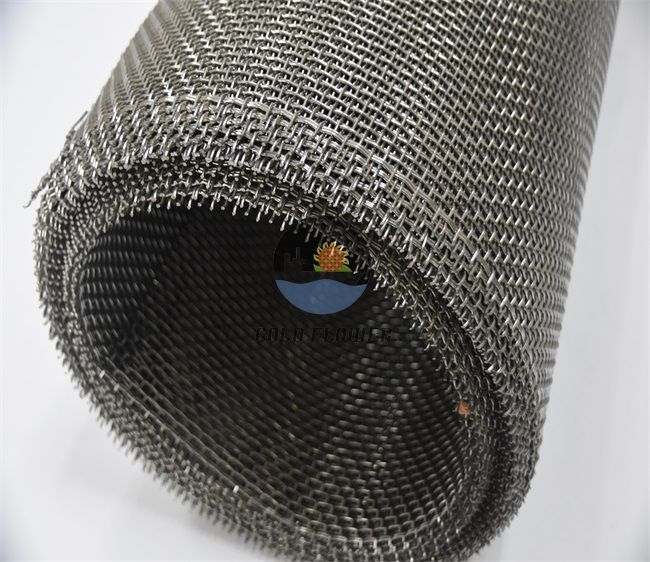okt . 11, 2024 18:56 Back to list
CE Certification for Steel Products and Wire Mesh Compliance Standards and Quality Assurance
CE Certification for Steel and Mesh A Comprehensive Overview
In the realm of construction and manufacturing, ensuring the safety and quality of materials is paramount. Among the various regulatory measures that guarantee standards, the CE (Conformité Européenne) certification plays a crucial role, particularly for products like steel and mesh. This certification signifies that the product complies with European Union (EU) legislation and meets essential health, safety, and environmental protection requirements.
Understanding CE Certification
CE certification is mandatory for many products sold within the European Economic Area (EEA). This certification indicates that a product meets EU safety directives, allowing it to be marketed freely across member states. For steel and mesh products, which are often integral to structural applications, the certification process involves rigorous testing and assessment to ensure durability, safety, and compliance with local building codes.
Importance of Steel and Mesh in Construction
Steel and wire mesh are fundamental components in construction, used for reinforcement, structural support, and various applications ranging from concrete reinforcement to fencing solutions. The properties of steel, including its high tensile strength, ductility, and resistance to corrosion, make it an ideal choice for constructing buildings, bridges, and other infrastructure. Wire mesh, on the other hand, is essential for enhancing the stability of concrete structures and ensuring they can withstand various stressors.
The CE Certification Process for Steel and Mesh
Achieving CE certification involves several steps
1. Identification of Applicable Directives The first step is to identify which EU directives govern the specific steel or mesh product. Common directives include the Construction Products Regulation (CPR) and the Machinery Directive.
ce certification steel and mesh

2. Testing and Assessment Manufacturers must conduct specific tests to demonstrate compliance with the relevant standards. This often entails mechanical testing, durability assessments, and sometimes fire resistance tests, particularly for construction materials.
3. Documentation Comprehensive documentation must be prepared, detailing the product specifications, testing methods, and results. This documentation forms the basis for the Declaration of Performance (DoP), which is a legal document that the manufacturer must provide.
4. Conformity Assessment Depending on the product's risk level, manufacturers may need to engage a third-party notified body to conduct a conformity assessment. This body verifies that the product meets all necessary regulations and standards.
5. Declaration of Performance Upon successful completion of testing and assessment, the manufacturer issues a DoP, outlining the product's characteristics and confirming its compliance with EU regulations. This declaration must accompany the product when it is placed on the market.
6. Marking Finally, once certified, the product must carry the CE marking, which signifies compliance and allows for the free movement of products within the EU market.
Benefits of CE Certification
The CE certification offers numerous advantages for manufacturers and consumers alike. For manufacturers, it opens doors to the European market, ensuring that their products are recognized and trusted across member states. For consumers and builders, CE certification provides assurance of quality and safety, thereby reducing the risks associated with construction failures or safety hazards.
Conclusion
In conclusion, CE certification for steel and mesh products is a critical process that helps maintain high standards in construction materials. It ensures that products not only comply with safety regulations but also contribute to the overall integrity of structures. As the construction industry continues to evolve, adhering to CE certification will remain a fundamental practice, fostering innovation and ensuring public safety across Europe. Whether you’re a manufacturer or a consumer, understanding the significance of CE certification is vital in navigating the complexities of the construction landscape.
share
-
Premium Stainless Steel Netting Mesh Discount & ODM Stainless Steel Wire Mesh Solutions
NewsJun.24,2025
-
High-Quality Screen Stone for Modern Stone Screen Walls Elegant Facade Solutions
NewsJun.10,2025
-
High Quality Wire Filter – Cheap Stainless Steel Filter Wire Mesh Cloth & Wire Mesh Filter Solutions
NewsJun.10,2025
-
5 Micron Water Filter Cartridge - Premium Sediment Filtration, Universal Fit
NewsJun.10,2025
-
High Quality CE-Certified Gabion Boxes with OEM Options
NewsJun.10,2025
-
20x20x2 Air Filter High-Efficiency Dust Filtration for Clean Air
NewsJun.10,2025

